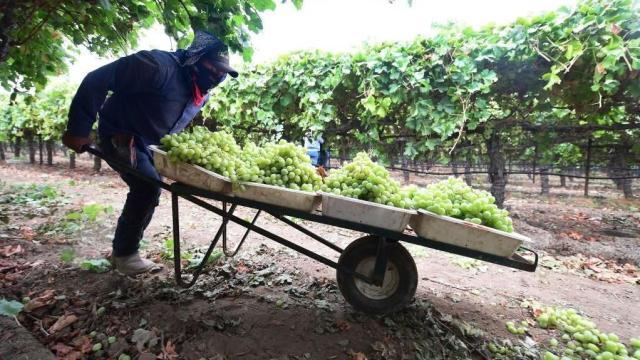Getting food from a field to our markets or even our plates creates more emissions than previously estimated. A study published in Nature Food found that the mileage on food (or “food miles”) is responsible for about 6% of all greenhouse gas emissions, making the associated emissions 3.5 to 7.5 times higher than prior calculations.
Unlike some previous studies that only analysed parts of the food trade, this new analysis tried to look at everything that goes into the global food chain. They considered emissions caused by transportation, the machines used to produce the food, and even emissions associated with growing the feed for livestock animals.
Transporting food accounted for 19% of the total food-system emissions. When factoring in food miles and the factors behind those miles, like production land-use, the global food system represented about 30% of the world’s emissions.
Unsurprisingly, the bulk of those food mile emissions came from wealthy nations. In fact, these rich countries made up 52% of international food miles, which were associated with about 46% of the associated emissions, despite only housing about 12% of the world’s population. To calculate these emissions, the team analysed data on 74 regions and countries.
“It’s not that we are showing that previous studies were wrong. We used a different approach to calculating emissions,” David Raubenheimer, a professor at the University of Sydney, told Earther. “[So] not only of the end point in food transport, but all of the processes that are associated with emissions. It’s more systems-wide approach.”
Raubenheimer said that he and his colleagues were surprised to learn that specific modes of transport were associated with higher or lower food mile emissions. “You think that the major culprit would be the long-distance food miles, which is international shipping of foods. And one of the surprising findings to us was that it contributed a relatively small per cent,” he said. “The biggest bit was contributed by local transport within countries, rather than between countries.”
And when they used a model that calculated emissions as if no country were importing food from abroad and only transporting that food internally, the overall emissions dropped by about 10%, he said.
Eating more plant-based food is often touted as a way to be more climate-friendly. And yes, meat is a large contributor of greenhouse gas emissions. Crucial landscapes like the Amazon rainforest are burned and cleared every year for cattle ranching. Though producing meat accounts for seven times the carbon emissions of vegetables, emissions from transporting the meat, which is the associated food miles, creates less emissions than when fruits and vegetables are transported.
“Global freight transport associated with vegetable and fruit consumption contributes 36% of food-miles emissions — almost twice the amount of greenhouse gases released during their production,” the researchers wrote in their study.
Some of these emissions are a due to wealthy nations being able to import out-of-season fruits and vegetables, which often need to be refrigerated during lengthy transits. Consider how supermarkets across Northern states in the U.S. are able to sell an assortment of fruits and vegetables, many from countries south of the border, even in the dead of winter.
Raubenheimer said that producing and eating less meat does help lower overall food-associated emissions, but food systems must also become more local. “[We should be] focusing more on seasonally available fruits and vegetables than trying to get things out of season,” he said. “The more local, the better.”
This story is part of Covering Climate Now’s ‘Food & Water’ joint coverage week.
